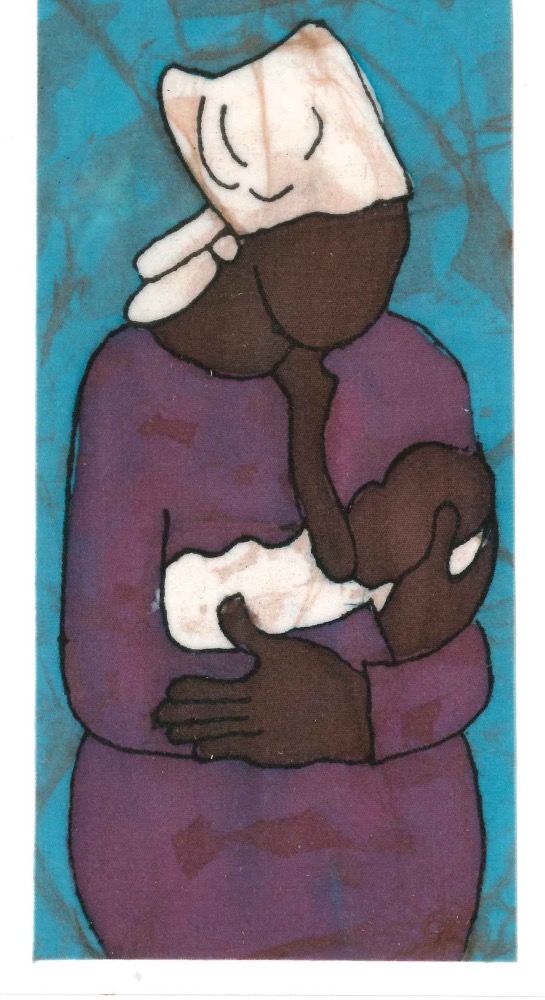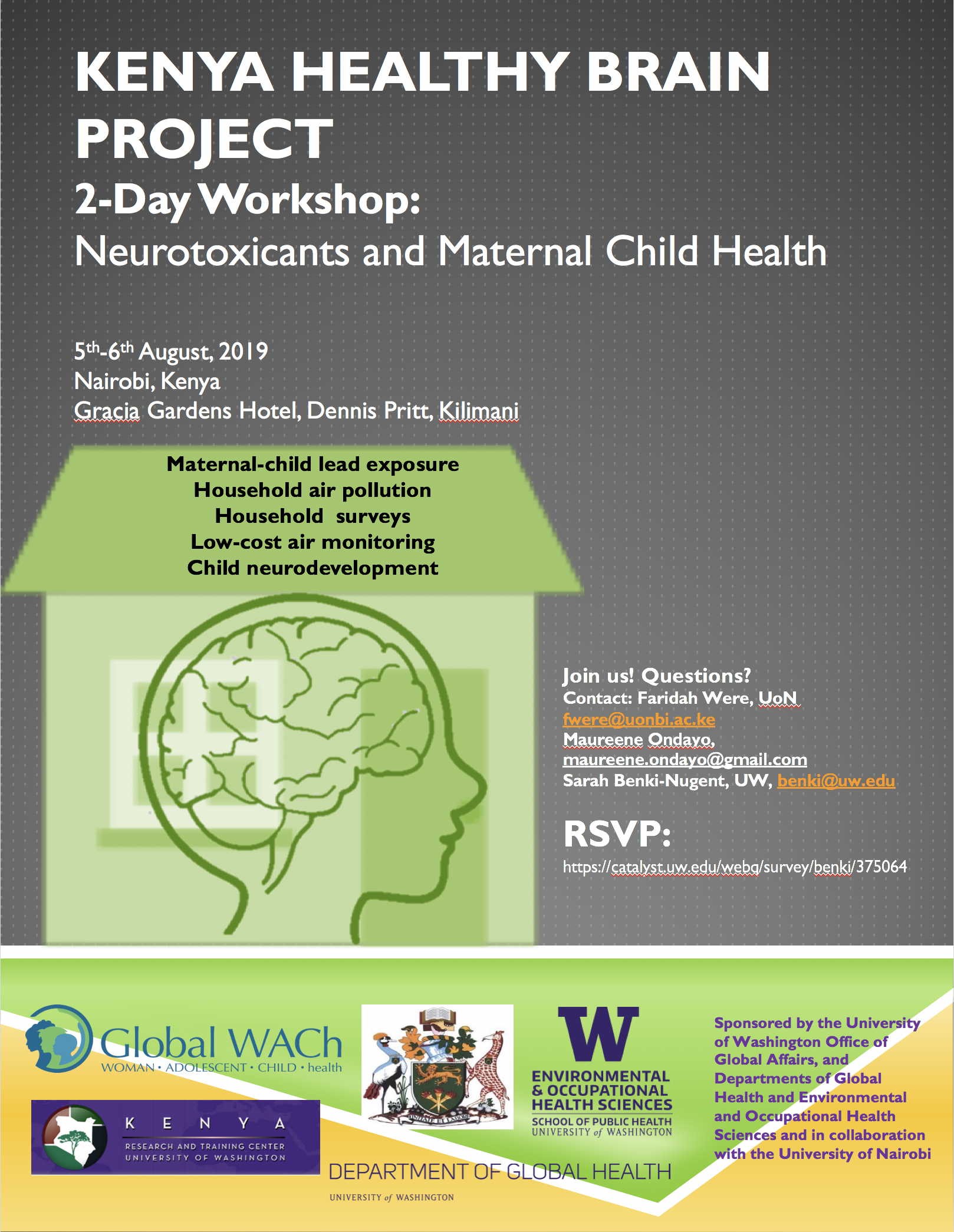2019 Workshop Neurotoxicants and Maternal Child Environmental Health Research, Practice and Policy
We are pleased to invite academic, public health practice, and government stakeholders to a 2-day Workshop on August 5th and 6th. We will review recent scientific advances, identify research priorities, research capacity strengths and challenges and potential entry points for translating research into practice in Kenya. The Workshop will emphasize neurotoxicants (such as lead and air pollution) and child health.
Space is limited. Please RSVP to help us plan accordingly.

When
5th-6th August, 2019
8.30-17.00
Where
Gracia Gardens Hotel, Dennis Pritt, Kilimani Nairobi, Kenya
Topics
Maternal-child lead exposure
Household air pollution
Household surveys
Low-cost household air monitoring
Child neurodevelopment
Workshop Objectives
Provide environmental health scientists and medical professionals with the opportunity to explore potential collaborations and ways to engage in MCEH research and practice.
Establish an Advisory Board to set research and capacity building priorities.
Discuss priorities on maternal child blood lead surveillance in Kenya. We will focus on challenges and potential pathways towards this objective.
Develop a prototype Kenya Healthy Home Assessment Tool (K-HHAT). We will seek input on a household survey involving direct observation and a checklist to identify household environmental neurotoxicant exposure risks. The K-HHAT will be tailored for urban communities.
Hear about innovative projects and methods important for MCEH work.
Connect with colleagues, share your community’s needs and identify shared priorities. Join a new research and practice network focused on neurotoxicants and maternal child health.

Sponsored by
UW Office of Global Affairs Global Innovation Fund
UW Department of Environmental and Occupational Health Sciences
UW Department of Global Health
See our recent work on air pollution exposure and cognition in HIV+ children
TEAM
University of Nairobi:
Faridah Were, MS, PhD, Lecturer, Dept. of Chemistry. She specializes in occupational and environmental exposures to chemical pollutants.
Elizabeth Maleche-Obimbo, MBChB, MMed, MPH, FPulm, Paediatric Pulmonologist and Epidemiologist, Professor, Dept. of Paediatrics & Child Health. She has extensive expertise in Paediatric clinical care, research, medical training, and management of large health care programs.
Maureene Ondayo, MSc, plans to obtain her PhD in Environmental Science at the UoN. She recently published a paper on lead levels in soil and house dust in Nairobi informal settlement schools and homes.
University of Washington:
Sarah Benki-Nugent, MS PhD, Clinical Assistant Professor, Dept. of Global Health. She has led studies on HIV, neurodevelopment and environmental health in Kenya.
Catherine Karr, MD PhD MS, Joint Professor, Pediatrics and Department of Environmental and Occupational Health Sciences (DEOHS). She is a leader in pediatric environmental epidemiological research.
Anne M. Riederer, MS, MSFS, ScD, Affiliate Associate Professor, DEOHS. She is expert in assessing exposures in children and pregnant women to heavy metals, pesticides, and other environmental neurotoxicants.
Edmund Seto, MS, PhD, Associate Professor, DEOHS. He specializes in development of low-cost air monitoring devices.
Brent Collett, MS, PhD, Associate Professor of Psychiatry and Behavioral Sciences and Attending Psychologist in the Department of Child Psychiatry and Behavioral Medicine at Seattle Children’s Hospital. His research focuses on neurodevelopment in young children, including studies examining prenatal exposures and neurodevelopment in children.
QUESTIONS? Contact
Faridah Were, UoN fwere@uonbi.ac.ke
Maureene Ondayo, maureene.ondayo@gmail.com
Sarah Benki-Nugent, UW, benki@uw.edu

